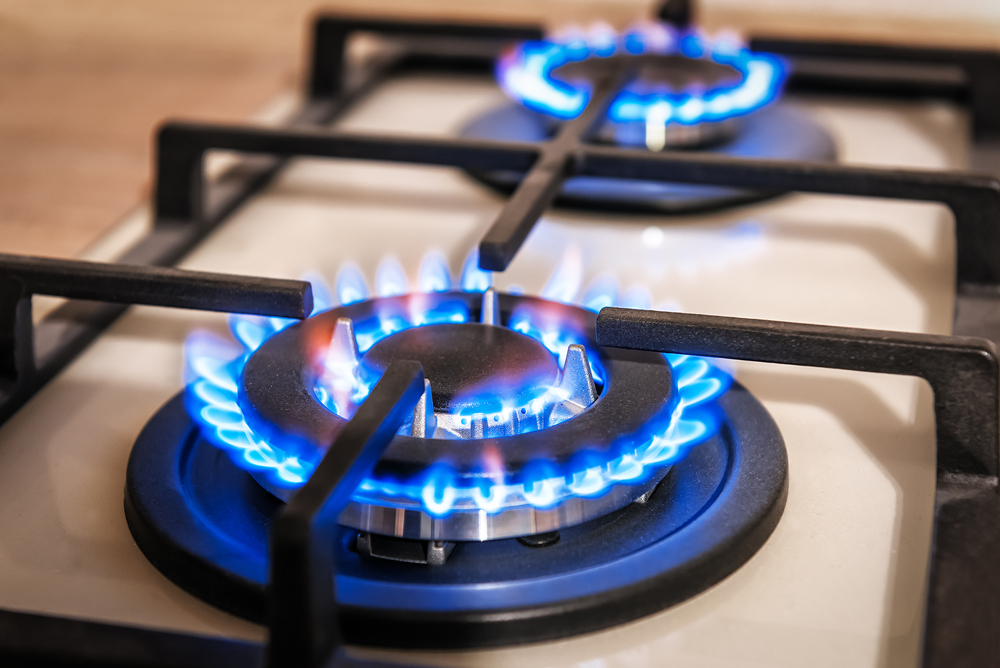Energy crisis Q&A: Energy expert answers questions on what the crisis could mean for the lettings industry
Energy expert Rik Smith, previously of Uswitch and British Gas and current Head of Tenancy Services at Goodlord, answers letting agents' questions on the current energy crisis and how it could impact themselves and their landlords and tenants.
The Goodlord team
Sep 30, 2021
What are the options for tenants who are struggling to pay their bills? What happens if my tenants' energy supplier goes bust? What happens if I have a vacant property and the supplier goes bust? Energy expert Rik Smith answers these questions and more on the unfolding energy crisis and its impact on the lettings industry.
➡️ See all our resources for letting agents on the energy crisis.
Why is the cost of energy increasing?
The North Sea oil and gas fields used to be full of gas and we've been drawing from them over the last 60 years. However, those stocks are dwindling slowly but surely and, as a result, we now import more than half of the gas we use. Gas is important because we use gas to generate quite a lot of electricity, so if gas prices are high, electricity prices are also going to be high. Some of our gas comes in the form of liquified natural gas and there is now a lot of international competition for that gas. As a result, we've seen prices increase. "Unprecedented" is a phrase that has been used a lot in the recent period, but the wholesale cost of gas being bought by energy suppliers and power stations is reaching levels we have never seen before.
How will this affect households?
People who don't choose an energy tariff - for example they move home and they haven't talked to the supplier or chosen a deal - will be on a standard variable tariff. Historically, standard variable tariffs have been quite expensive and there have been good savings to be had if you switch to a fixed tariffs. A lot of tenants and homeowners - in fact, 50% of everyone across the UK - are on these standard variable tariffs. These tariffs are capped, but the cap is reviewed every six months - it will go up by nearly £140 pounds on 1 October and because wholesale prices are going up so steeply, it will increase again at the beginning of next year. I can't say by exactly how much, but one should expect it to go up by at least a couple of hundred pounds. So this is the foothills of these prices being passed on to households - the cost of living is increasing. This is definitely the time to be thinking, have you got tenants who may well struggle to pay their bills now?
What are the options for tenants who are struggling to pay their bills?
You can help your tenants access the Warm Home Discount, which is £140 pounds, the Winter Fuel Payments, or even the Cold Weather Payments. These are benefits that are designed to help those who most need them. Tenants should also be advised to contact their energy supplier to seek that help if they need it, because you do have to put your hand up and ask for it. Now, as these costs are going up, there is a chance that tenants may also struggle to pay their rent, so it's important to have an insurance policy in place that will protect you and your landlords. For more information, read our guide to the financial support available.
Who are the suppliers going bust?
They are smaller suppliers - not the recognisable names - but their share of the market has gown over the past five years to a few percentage points. The Big Six, those big household names are the ones who are well-funded well-recognised and are the ones who are extremely unlikely, uh, to be feeling the pinch, uh, during this period, yes, prices will go up the price cap and those fixed prices will increase, but they are very unlikely to go bust. They supply most of the households in the UK. But there is speculation within the market that, actually, the nearly 70 suppliers in the market could well shrink to more like 10. We're tracking which suppliers have gone bust and their replacement suppliers.
What happens if my tenants' energy supplier goes bust?
There are rules and laws to protect consumers when a supplier goes bust. So, if a tenant or a property that you're managing was supplied by one of the providers that failed, the government effectively appoints a new supplier. Any credit you have with the old supplier will also be transferred to the new supplier. A new supplier will be appointed within 5 to 7 days and will start contacting their new customers to say they've taken them on and to give them a little bit of time. It will take a few weeks, but nobody's lights will go off in the meantime. But the prices that were previously agreed - say, if you had a nice cheap fixed tariff - that, unfortunately, will not be honoured by the new supplier. Instead, consumers will be put onto a price-capped tariff.
What happens if my tenants are about to move out and their supplier goes bust?
The managing agent should be talking to the new supplier and let them know that they are responsible for managing the bills for this period. It is important that you get meter readings - perhaps even take pictures of the meters - and make sure you get a reliable forwarding address for your tenants, because it will take time for those final bills to come through - estimates are that it could take up to 16 weeks for those final bills to be generated, not the normal four to six weeks we're used to.
What happens if I have a vacant property and the supplier goes bust?
What this means is that, in effect, the void is being left with the failed supplier, but the tenants who are moving in will need to talk to the new supplier. These new suppliers have dedicated pages on their websites with information for those who have been transferred, but a lot of the time they will say sit tight, because these things do take a little bit of time.
How could the energy crisis impact landlords with bills inclusive properties?
Costs are likely to increase if they were with a failed supplier or if they haven't chosen a fixed price deal. Those fixed price deals are also likely to end and the new prices are likely to be very high. So, how do you support your landlords in effectively reflecting these increased costs? You should be planning for the fact that hundreds of pounds are likely to be added to energy bills over the next six to 12 months and you don't want to be going back to tenants multiple times, suggesting the value of the rent has changed.
If I have tenants or landlords who are with one of the small to mid-sized firms, would you advise them to switch now?
It is quite speculative. The mid-tier providers includes strong, well-backed supplies but there are some challenges. So am I advocating that everybody switches to the big six tomorrow? No, because actually these small to mid-sized firms do offer good value. If you've got a good value, fixed price deal, you should take advantage of that for as long as you can. There may well be exit fees if you were to leave a fixed deal early so I would urge you to stick with your fixed deal for as long as possible. If you're on the price capped standard variable that Octopus is offering at the moment, they're saying they're going to charge slightly less than the Energy Price Cap so they may well be a good safe Haven. But other suppliers are able to offer much longer fixed tariff deals. They might be more expensive, but they do provide certainty. So I'm not saying to leave the small to medium suppliers tomorrow - I'm saying take advantage of any fixed deal you've got and maybe consider one of those big guys for your next switch.
Is it too late to switch to a fixed rate? What advice would you give to anybody stuck on a variable rate?
It would be remiss of me if I didn't draw upon my previous experience working at Uswitch and say , you can always run a comparison, where it asks you for your current supplier, how much energy you use, and then shows you what's available. Unfortunately, a lot of these price comparison services are finding that the new deals are really expensive. They're really expensive because of the gas price spike, which is a real challenge and you will see that there are some deals out there for 12, 24, or 36 months that are more expensive. So would I encourage you to fix your prices? Absolutely. Yes, I would. If you're willing to pay a little bit more you will get price certainty. You can also go directly to the supplier and sign up on their website, but do run those comparisons, check out the prices that are available to you. If you want to pay the least you can today, then staying on a price capped tariff may well be your cheapest option in the short term. But remember the prices are going up on 1 October and very likely again on 1 April.
What does this mean for households who don't use gas?
Eighty-percent of households have gas in the UK, but there are still 20% who don't. Now, while I've talked about gas prices going up, those very much feed through to electricity prices. So even if you only buy electricity from a supplier, they're still being impacted by the rising prices and there's a chance that they could still go bust. In a block management scenario where heat is centrally provided and administered by a heat company, my expectation is that they will also be experiencing higher costs and we'll also be looking to pass those on. So it is quite possible that those heating bills will go up as well.





